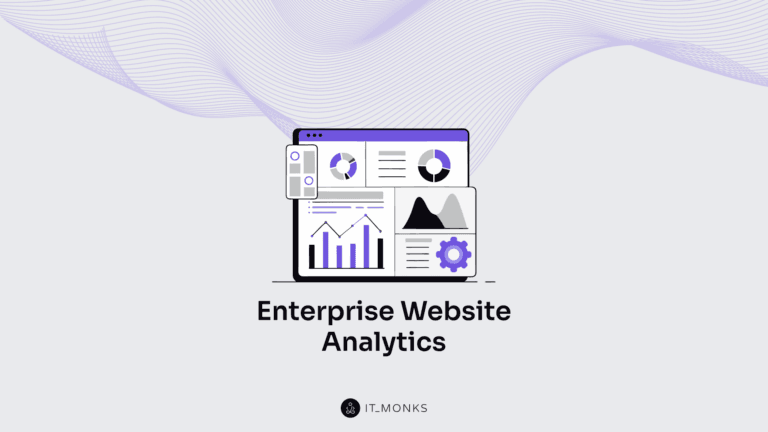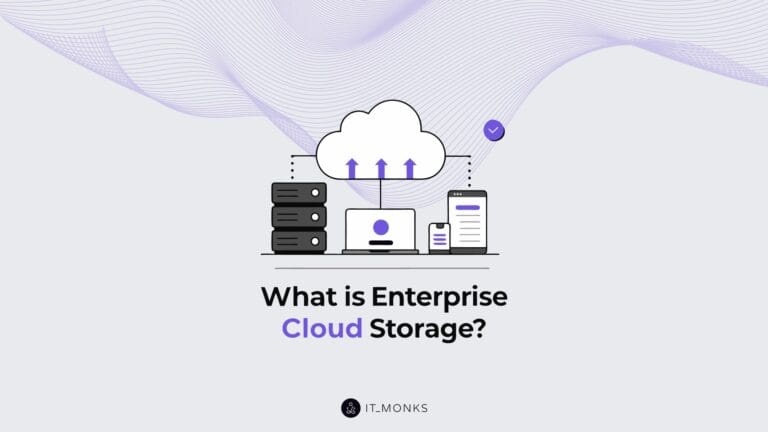Ecommerce Website Management: Best Practices and Essential Tips
Table of Contents

Managing an ecommerce website effectively is critical to the success of any online business. This process involves a wide range of activities, from ensuring site security and performance to maintaining content and monitoring user behavior. Proper ecommerce website management enhances the overall customer experience and supports business growth and competitiveness. In this article, we will explore the essential aspects of ecommerce management, explaining what it entails, why it is important, and the best practices to follow for optimal results. Let’s dive in!
What is Website Management?
Website management refers to the systematic process of maintaining and optimizing a website to ensure it runs smoothly and meets the objectives of the business. For ecommerce websites, this involves several key activities:
- Content Management: One of the primary aspects of website management is content management. This involves regularly updating product listings, blogs, and other types of content to keep the site fresh, relevant, and engaging for visitors. Regular content updates help attract and retain customers and improve search engine rankings. This can include adding new products, writing blog posts about industry trends, and updating product descriptions and images.
- Technical Maintenance: Technical maintenance is crucial for ensuring the website’s infrastructure functions correctly and efficiently. This involves managing servers, databases, and other backend components that keep the website running. Technical maintenance tasks include optimizing the website’s code, ensuring compatibility with different browsers and devices, and regularly updating software and plugins to prevent technical issues and enhance performance.
- Security Management: Implementing and updating security measures to protect the website from cyber threats is critical to website management. This involves installing and renewing SSL certificates, configuring firewalls, and regularly scanning the website for vulnerabilities. Security management also includes educating staff about best practices for cybersecurity and ensuring compliance with relevant data protection regulations.
- Performance Monitoring: Tracking and analyzing website performance metrics is essential for identifying and resolving issues promptly. Performance monitoring involves using tools to measure page load times, uptime, and overall site speed. By analyzing these metrics, businesses can pinpoint areas that need improvement and take necessary actions to optimize the website’s performance. This ensures a smooth and fast user experience, crucial for keeping visitors engaged and reducing bounce rates.
- Customer Support: Managing customer inquiries and feedback is vital to website management. Effective customer support involves responding promptly to customer queries, addressing orders, returns, or product information issues, and collecting feedback to improve products and services. A robust customer support system enhances customer satisfaction and loyalty, encouraging repeat business and positive word-of-mouth referrals.
Seeking expert site management help?
Importance of Website Management
Effective ecommerce management is crucial for several reasons:
- Enhancing customer experience. A seamless and enjoyable shopping experience is vital for retaining customers and encouraging repeat business. By regularly updating content, optimizing site performance, and ensuring a user-friendly interface, businesses can significantly enhance the customer experience. Fast loading times, intuitive navigation, and a secure environment contribute to a positive shopping experience, boosting customer loyalty and sales.
- Improving search engine rankings. Search engines favor well-maintained websites, are updated regularly and provide a good user experience. Regular website management, including technical SEO optimizations and content updates, can improve search engine rankings. Higher rankings increase visibility, drive more traffic to the site, and ultimately lead to more conversions and sales.
- Conveying a strong brand image. A well-managed ecommerce website reflects professionalism and reliability, which are essential for building customer trust. Regular updates and high-quality content demonstrate a commitment to excellence, helping to convey a strong and consistent brand image. This positive perception can differentiate your brand from competitors and foster customer loyalty.
- Informing business decisions through data. Website management involves monitoring and analyzing performance metrics like traffic, user behavior, and sales data. This information is invaluable for making informed business decisions. By understanding how customers interact with the site, businesses can identify areas for improvement, tailor marketing strategies, and optimize product offerings to meet customer needs.
- Providing shopping convenience to customers. Effective website management ensures that the ecommerce site is easy to navigate, secure, and reliable. Features like a streamlined checkout process, quick load times, and responsive customer service contribute to a convenient shopping experience. Businesses can increase sales and customer satisfaction by removing barriers to purchase and making it easy for customers to find and buy products.
Need to keep your store maintained?
Key Elements of Ecommerce Website Management
Managing websites involves various critical tasks that ensure the site operates efficiently and securely and provides a great user experience. Below, we outline the essential components of ecommerce website management and offer practical tips and tools for each aspect.
Website Security
Ensuring the security of an ecommerce site is paramount to protecting sensitive customer data and maintaining trust. Cyber threats like hacking, phishing, and malware can compromise data integrity and lead to significant financial and reputational damage. Implementing robust security measures, including SSL certificates, firewalls, and regular software updates, is crucial. Daily security checks and reports help identify and mitigate potential threats promptly.
The management routine should involve conducting daily security checks, generating security reports, regularly updating security software and plugins, and educating staff on best security practices.
Essential tools for website security include SSL certificates from providers like Let’s Encrypt and Comodo SSL, firewalls such as Sucuri and Cloudflare, and security scanners like Sucuri SiteCheck and Qualys.
Website Backups
Regular backups are essential to protect against data loss due to technical failures, cyber-attacks, or human errors. Backups ensure that your data can be quickly restored, minimizing downtime and loss of revenue. Automated backup solutions can simplify this process and provide peace of mind.
Popular tools for website backups include UpdraftPlus, BackupBuddy, and CodeGuard.
We’ve already discussed website backups on our blog. For more detailed information, refer to this dedicated article.
Uptime Monitoring
Ecommerce uptime monitoring is crucial to ensure your ecommerce site is always accessible to customers. Downtime can lead to lost sales and damage to your brand’s reputation. Tools that monitor uptime provide alerts and reports to help maintain maximum availability.
Some of the most popular tools for ecommerce uptime monitoring include Pingdom, UptimeRobot, and Site24x7.
Page Speed Optimization
Page speed is a critical factor in user experience and SEO rankings. A slow website can frustrate customers and lead to higher bounce rates. Optimizing images, leveraging browser caching, and minimizing HTTP requests are effective strategies for improving speed. Tips to improve website speed include optimizing images, using modern image formats, enabling browser caching, and minimizing HTTP requests through a Content Delivery Network (CDN).
Tools like Google PageSpeed Insights and GTmetrix and optimization tools like WP Rocket, Lazy Load, and ShortPixel should help you make WordPress faster.
Cross-Browser Testing
Ensuring compatibility across browsers and devices is essential for a consistent user experience. Regular testing helps identify and resolve issues arising from varying browser behaviors. This ensures a consistent user experience across all browsers and devices and helps identify and resolve browser-specific issues.
Popular testing platforms include BrowserStack, CrossBrowserTesting, and LambdaTest.
Regular Updates and Maintenance
Up-to-date software, plugins, and content are vital for security and performance. Regular maintenance includes updating the CMS, plugins, and themes and removing outdated content or broken links. This enhances website security and functionality while preventing compatibility issues and bugs.
Tools for updates and maintenance include management tools like ManageWP and MainWP and built-in update features in platforms such as WordPress and Magento.
Want to secure your store?
Analytics and Metrics Review
Monitoring and analyzing website performance through analytics tools provides insights into user behavior, traffic sources, and conversion rates. Key metrics to track include bounce rate, average session duration, and conversion rate. This provides data-driven insights for informed decision-making and helps identify areas for improvement to optimize the user experience.
Essential analytics and metrics review tools include analytics platforms like Google Analytics and Adobe Analytics, heatmaps, and user recording tools such as Hotjar and Crazy Egg.
Conclusion
Ecommerce website management is a multifaceted task that requires ongoing attention and a proactive approach. By focusing on critical elements such as security, backups, uptime monitoring, page speed optimization, cross-browser compatibility, regular updates, and analytics review, businesses can ensure their ecommerce sites run smoothly and efficiently. Implementing these best practices enhances the customer experience and drives business growth and success.
Effective ecommerce website management is an essential component of any successful online business strategy, supporting long-term sustainability and competitiveness in the digital marketplace. If you need expert help managing websites, rely on IT Monks. We ensure your website is built to outperform competitors and deliver your customers the utmost online shopping experience. Contact us today to discuss the details of your project.




